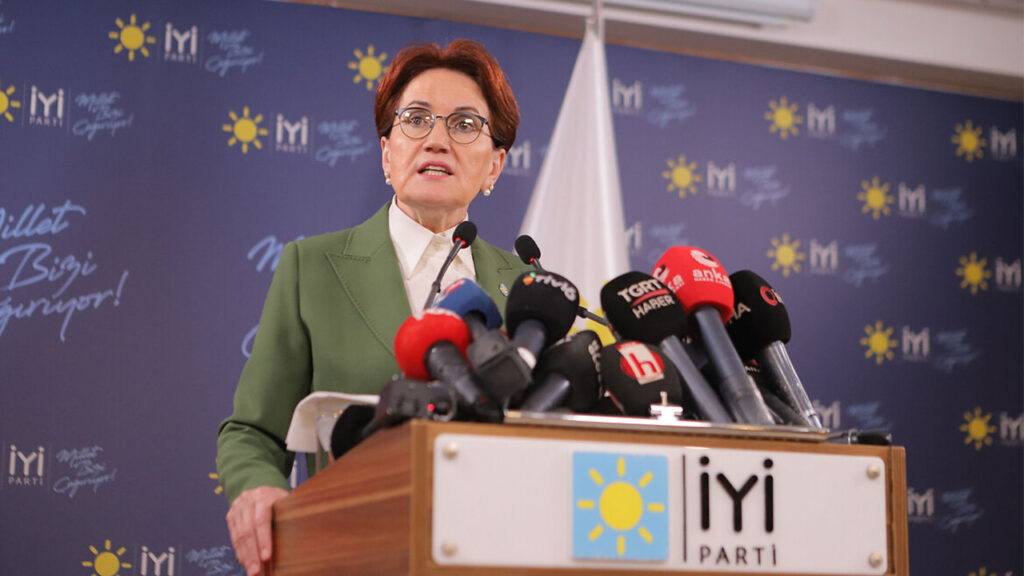Meral Akşener, head of the nationalist opposition İYİ (Good) Party, bid farewell to her role as party leader in an emotional speech at Saturday’s extraordinary party congress where members will elect a new chairperson.
The extraordinary congress was called after the İYİ Party sustained a defeat in the recent local elections, winning only 3.7 percent of the nationwide vote, comprising only one provincial municipality and 23 district and seven town municipalities.
The İYİ Party had been a member of an opposition election alliance called the Table of Six and received 9.9 percent of the nationwide vote and 44 seats in parliament in the May 2023 general election.
The party left the alliance following the May election, when the opposition bloc candidate, former main opposition Republican People’s Party (CHP) leader Kemal Kılıçdaroğlu, was defeated.
Akşener has been at the helm of the party since its founding in 2017. She announced after the local elections on March 31 that she would not seek re-election as party leader. She praised the members of the party and thanked them for their support.
In her farewell address, Akşener said she was proud of the party’s achievements and its commitment to democracy and human rights. She also acknowledged the challenges the party faced, including defeat in the local elections.
Akşener, who is a vocal critic of the Turkish government, said the party would continue to fight for democracy and human rights. She also praised the party’s members for their commitment and dedication to the cause.
A new chairman is expected to be elected at the extraordinary congress, for which four candidates, among them deputy group chairman Müsavat Dervişoğlu and lawmaker Koray Aydın, are running. The congress is being held at the ATO Congresium in Ankara.
The İYİ Party was established by Akşener, a former member of the far-right Nationalist Movement Party (MHP), in 2017 as an alternative for nationalists and center-right Turkish voters after she parted ways with the MHP.
The İYİ Party was able to enter parliament in the 2018 general election thanks to its alliance with the CHP, which helped it circumvent a 10 percent election threshold. Akşener ran against President Recep Tayyip Erdoğan in the presidential election in 2018 but was defeated.
An influential figure in Turkish politics, Akşener served as interior minister from November 1996 through June 1997. She has been accused of links to mafia groups as well as a role in the unsolved murders and enforced disappearances that were frequent occurrences in the country’s predominantly Kurdish southeast in the 1990s.



